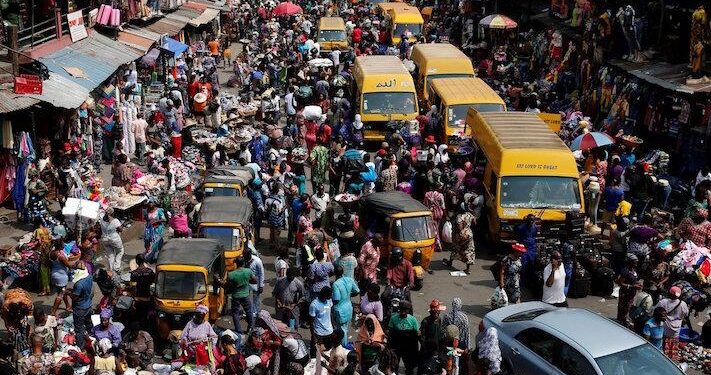One in Two Nigerians Live in Poverty: Why Relief Programmes Have Failed
Poverty in Nigeria has reached critical levels, recent data shows. About 31% of Nigerians lived in poverty prior to the COVID-19 epidemic. Since then, an additional 42 million have become poor, increasing the poverty rate to about 46% in 2024.
Over 133 million people are living in multidimensional poverty, despite government efforts to reduce hardship.
Multidimensional poverty means being deprived of wellbeing in several ways. It goes beyond income.
The national Multidimensional Poverty Index indicates that 67.5% of children in Nigeria aged 0-17 are poor. And half of all poor Nigerians – 51% – are children.
Over the years, successive governments have tried a number of things to reduce poverty.
The National Poverty Eradication Programme was established in 2001 and the Subsidy Reinvestment and Empowerment Programme in 2012. The National Social Investment Programme was introduced in 2016.
Yet poverty levels have continued to rise. The question is why.
I am a political scientist whose research looks at the intersections of legislative oversight, poverty alleviation and conflict dynamics.
I recently conducted a study which examined why government poverty alleviation programmes in Nigeria have under-performed.
The study focused on the responsibility of lawmakers to hold governments accountable, and how this fits with Nigeria’s poverty alleviation agenda. It examined how poverty programmes are designed, implemented and evaluated.
The findings showed that poverty persists not because of a lack of programmes but because of governance failures. Three factors stood out: weak legislative accountability, political interference, and the absence of people-centred policy designs.
Three factors are responsible
1. Weak legislative accountability: Lawmakers are supposed to serve as a watchdog, ensuring that things get done. In practice, this oversight is often weak, underfunded, or compromised.
Parliamentary committees responsible for monitoring programmes frequently lack the resources, data and independence to scrutinise government actions. In many cases, legislators have limited incentives to challenge the executive, especially when they belong to the same ruling party. Consequently, government agencies can avoid accounting for what they do, or fail to do.
Many initiatives collapse shortly after their launch because no one is tracking whether goals are met. Anti-poverty programmes become symbolic gestures rather than vehicles of real change.
2. Political interference: Poverty alleviation in Nigeria is rarely separate from politics. Instead, programmes are designed and implemented with political objectives in mind, especially during election cycles.
Governments use these programmes to build loyalty or reward supporters. They expand patronage networks rather than addressing the roots of poverty. For example, appointments to programme boards or agencies are frequently based on political considerations, not technical expertise. Beneficiary lists are sometimes skewed towards ruling party loyalists rather than the poorest communities.
This political capture means that programmes are short-lived. Once a new administration takes office, it often abandons what the last one did. This leads to duplication, waste and discontinuity.
3. Absence of people-centred policy design: Perhaps the most striking finding is that many poverty relief policies are not designed with the poor at the centre. Instead, they are top-down strategies. They are distant from the everyday realities of poor communities.
These policies are about broad economic restructuring or macro-level reforms rather than immediate needs like food security, healthcare, local employment, or education access. Beneficiaries are rarely consulted in the design or monitoring of programmes.
When communities see poverty initiatives as irrelevant or inaccessible, it’s likely the targets will be missed.
What should be done
Understanding why poverty relief programmes fail is important because poverty in Nigeria is not simply an economic problem. It is a governance and accountability problem.
Unless the weaknesses in oversight, politics and policy design are addressed, new initiatives will likely fail too.
To change course, the National Assembly must take legislative oversight more seriously. It must consistently examine the evidence around government programmes. This requires adequate resourcing of its committees, and stronger collaboration with independent auditors. Committees must have enough support from researchers and experts.
Regular public reporting should hold agencies accountable for funds and outcomes.
Political interference must end. The presidency and parliament should work together to keep poverty alleviation agencies away from partisan control. This can be done by appointing professionals and community representatives to manage them. Anti-corruption bodies must take action when funds are diverted or programmes are captured by elite interests.
Poverty relief policies must be designed with citizens at the centre. Communities must be consulted before programmes are launched, and the experiences of beneficiaries must be captured.








